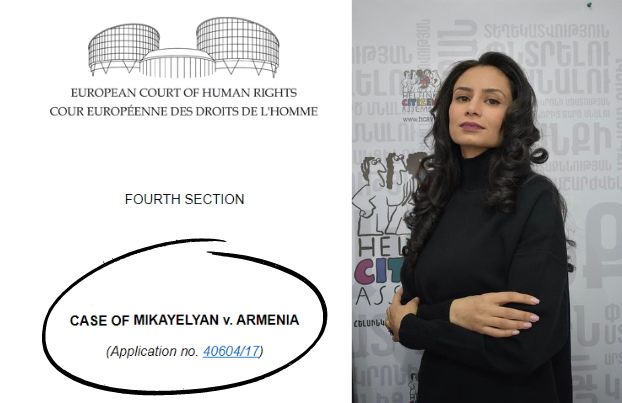The European Court of Human Rights ordered Armenia to pay 2,000 euros. The court found that the domestic courts of Armenia did not have relevant and sufficient reasons to keep Mikaelyan in custody.
In 2016, the armed uprising by the Sasna Tsrer group was followed by demonstrations, marches and rallies on a number of streets in Yerevan. Gagik Mikaelyan, who at that time worked as a teacher in one of the Yerevan schools, like thousands of others, exercised his right to participate in the rallies. On July 20, G. Mikaelyan was arrested by the RA police officers and taken to the police station. The latter was then charged with the crime of “participating in mass disorders,” which was known at that time to disperse demonstrations and protesters.
Since 2016, Ani Chatinyan, a lawyer at the HCAV office, has taken over the protection of Mikaelyan’s rights. The protection of rights has included both defending Mikaelyan against the charges in domestic courts, and challenging the legality of his detention in both domestic courts and the European Court of Human Rights. The ECtHR has reiterated that, under established case-law under Article 5 § 3 of the Convention, the condition for the lawfulness of detention is that there is a reasonable suspicion that the person has committed an offence, but that this is no longer sufficient after a certain period of time. In such cases, the Court must determine whether other grounds adduced by the judicial authorities continue to justify the deprivation of liberty. Where such grounds are “relevant” and “sufficient”, the Court must also determine whether the authorities have shown “special diligence” in the course of the proceedings. The ECtHR has also held that the justification for any period of detention, however short, must be substantiated by the authorities. When deciding whether a person should be released or remain in detention, the authorities must also consider alternative measures to ensure that the person concerned appears in court. The judicial officer’s “relevant” and “sufficient” reasons for detention The requirement, in addition to reasonable suspicion, is already applied at the time of the first decision to impose detention, that is, “immediately” after the arrest. Therefore, the HCAV complaint is admissible and reveals a violation of Article 5 § 3 of the Convention.
On September 26, 2024, the ECHR published a decision in Mikaelyan v. RA, in which it recorded that the domestic courts of Armenia did not have relevant and sufficient reasons for keeping Mikaelyan in detention and set compensation at 2,000 euros.
Chatinyan notes that the announcement of such judgments is very important from the point of view of recognizing the fact of violation of Article 5, as well as the cases of violations of other fundamental rights provided for by the Convention against the Republic of Armenia, since detention is always chosen as a preventive measure in the Republic of Armenia and is especially used as a punitive measure during demonstrations, marches, and peaceful assemblies.

